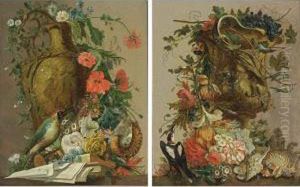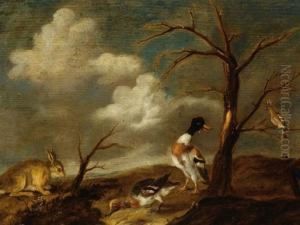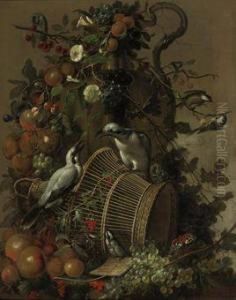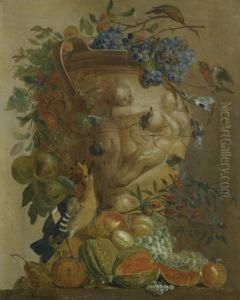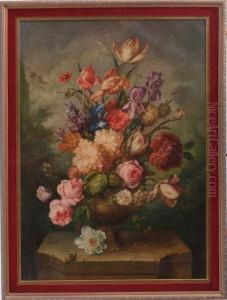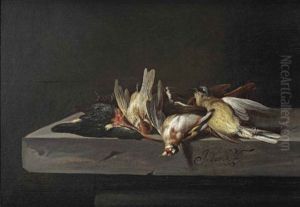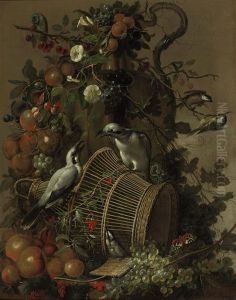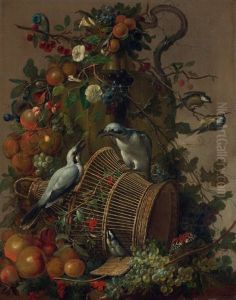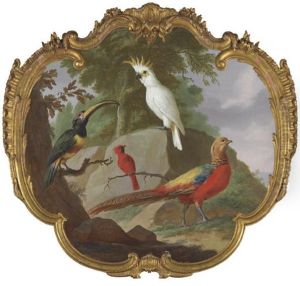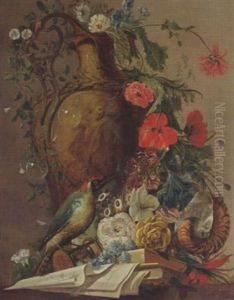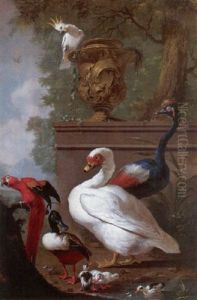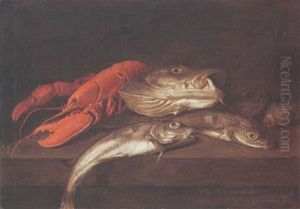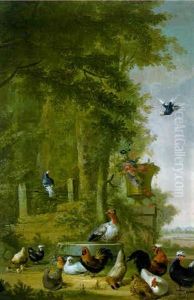Jacobus Vonck Paintings
Jacobus Vonck was a Dutch painter, born in 1739, whose artistic journey navigated through the realms of portraiture and landscape painting, reflecting the nuanced shifts in European art during the 18th century. His life, spanning the late Baroque period into the burgeoning Romantic era, was marked by a dedication to capturing the essence of his subjects with a keen eye for detail and an adeptness in manipulating light and shadow, a technique that endowed his works with a vivid sense of realism and emotional depth.
Vonck's early years were spent in Amsterdam, where he was born into a society that was increasingly appreciative of the arts, thanks in part to the thriving Dutch Golden Age that had preceded his birth. This environment nourished his artistic talents, and by his late teens, Vonck was already gaining recognition for his exceptional skills, particularly in portraiture. His ability to capture the intricacies of human expression and the subtleties of social status and personality through his portraits quickly earned him commissions from the Dutch elite, securing his reputation as a skilled portraitist.
However, Vonck was not content to limit himself to portraiture. His interest in the natural world and the changing landscapes of his country, influenced by the Dutch tradition of landscape painting, led him to explore this genre with the same fervor he applied to his portraits. His landscapes, characterized by meticulous attention to detail and a masterful use of light, reflect an early Romantic sensibility, predating the full bloom of Romanticism in European art. These works often depicted the Dutch countryside, imbued with a sense of tranquility and a deep appreciation for the beauty of the natural world, setting the stage for later Romantic artists.
Throughout his career, Jacobus Vonck navigated the challenges of an artist's life with resilience. Despite the shifting tastes of the art market and the political upheavals of his time, including the effects of the French Revolution and the Napoleonic Wars on the Netherlands, Vonck continued to produce works that resonated with his contemporaries. His adaptability and consistent quality of work ensured that he remained in demand, both for his portraits and his landscapes.
Jacobus Vonck passed away in 1801, leaving behind a legacy that, while perhaps not as widely recognized as some of his contemporaries, is significant for its contribution to the transition between the Baroque and Romantic periods in Dutch art. His works, preserved in collections across the Netherlands and beyond, continue to be studied and admired for their technical skill, emotional depth, and beauty, securing Vonck's place in the annals of European art history.
